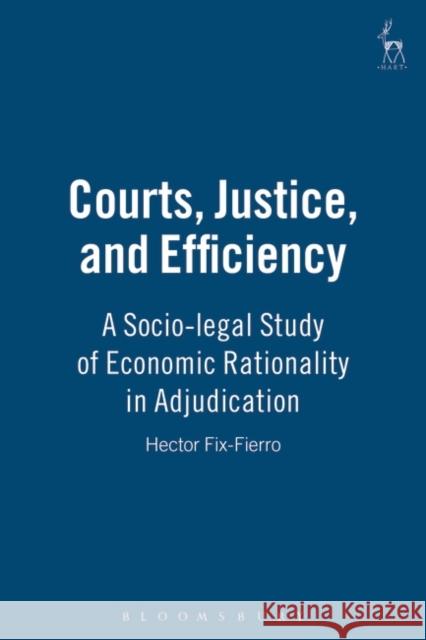Courts Justice and Efficiency: A Socio-Legal Study of Economic Rationality in Adjudication » książka
Courts Justice and Efficiency: A Socio-Legal Study of Economic Rationality in Adjudication
ISBN-13: 9781841133829 / Angielski / Twarda / 2003 / 288 str.
This study explores the socio-legal context of economic rationality in the legal and, specifically, judicial systems. In so doing it explores the meaning and relevance of the concept of efficiency for the operation of courts and court systems and seeks to answer questions such as: in what sense can we say that the adjudicative process works efficiently? What are the relevant criteria for the measurement and assessment of court efficiency? Should the courts try to operate efficiently and to what extent is this viable? What is the proper relationship between -efficiency- and -justice- considerations in a judicial proceeding? To answer these questions, a conceptual framework is developed on the basis of empirical studies and surveys carried out mainly in the United States, Western Europe and Latin America. Although the study's central concept - efficiency - is clearly an economic concept, the approach found in the book is predominantly sociological insofar as it will be examining the social operation of legal institutions, i.e., it seeks to find out how a basic concept of efficiency is related to different social dimensions of the legal system (including legal science) and court operation, from the level of society as a whole to the level of individual judicial proceedings and decisions.











